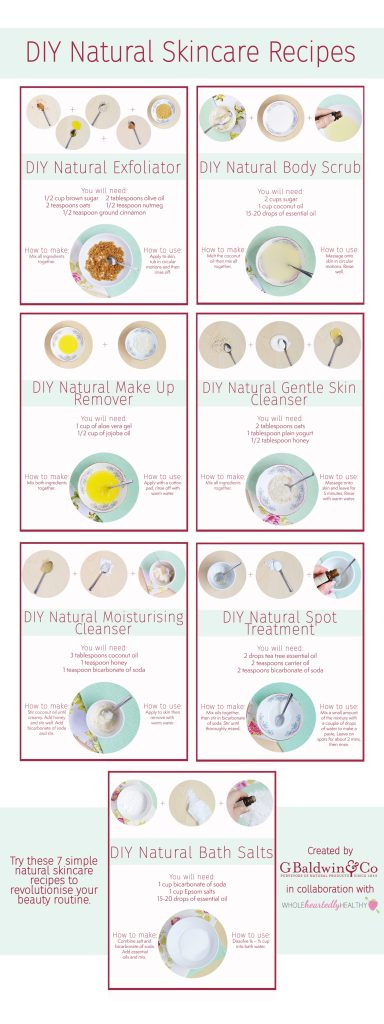
Natural skincare remedies are gaining popularity as people seek gentler, more natural ways to care for their skin. Tired of harsh chemicals and synthetic ingredients in conventional skincare products? Discover the transformative power of natural ingredients in these DIY recipes. This article will explore the various natural skincare remedies using simple ingredients that are readily available in your kitchen, including how to create effective and affordable DIY recipes. We’ll discuss the benefits, how to use them, and dispel common myths. We’ll also address the potential risks and precautions to ensure a safe and effective skincare routine.
Unveiling the Power of Natural Ingredients
Harnessing Nature’s Gifts for Radiant Skin
Natural skincare remedies leverage the power of nature’s gifts to address various skin concerns. From blemishes to dryness, many natural ingredients boast exceptional properties for supporting healthy skin. This ancient practice of utilizing natural ingredients has been passed down through generations, with diverse cultures employing home remedies for effective skincare. From ancient herbalists to modern skincare enthusiasts, the beauty of nature’s offerings continues to captivate and inspire. Exploring the potent properties of natural elements can lead to a more sustainable and effective skincare routine.
The Importance of Choosing the Right Natural Ingredients
Understanding the Benefits and Risks
One of the crucial aspects of successful natural skincare is selecting the right ingredients. Not all natural ingredients are created equal; some may be more suitable for certain skin types than others. Carefully consider the potential benefits and risks of each ingredient before incorporating it into your DIY skincare routine. Do your research and understand the specific properties of each ingredient to ensure its suitability for your skin. Understanding your skin type and any existing skin conditions will guide your ingredient selection process. For example, oily skin might respond well to clay-based masks, while dry skin may benefit from hydrating ingredients like aloe vera or shea butter.
Crafting Effective DIY Face Masks
From Simple Recipes to Powerful Treatments
DIY face masks offer a convenient and cost-effective way to pamper your skin. The best DIY face masks often involve ingredients found in your kitchen. A simple honey mask, for instance, can deeply moisturize dry skin, while a yogurt mask can help to brighten and tone skin. Avocado and banana masks are also valuable choices for providing intensive moisture. Numerous online resources and beauty blogs provide diverse and creative face mask recipes, allowing you to experiment and tailor treatments to your unique needs.
Essential Oils and Their Skincare Applications
Exploring the Aromatherapy Approach
Essential oils have gained popularity for their therapeutic and aesthetic properties. Many essential oils, like lavender and tea tree oil, possess anti-inflammatory and antiseptic properties. They can be beneficial in addressing acne, calming irritated skin, and promoting skin health. However, essential oils should be used cautiously, as some may cause allergic reactions. Always dilute essential oils with a carrier oil, such as jojoba or almond oil, before applying them directly to your skin. Patch testing is strongly recommended to assess your skin’s reaction to specific oils.
Beyond Face Masks: Other DIY Skincare Solutions
Natural Scrubs, Toners, and Moisturizers
Beyond face masks, you can craft a wide range of other skincare products using natural ingredients. For instance, you can easily create gentle exfoliating scrubs using sugar or oats. Using natural ingredients like cucumber and rose water can create refreshing and soothing natural toners. Furthermore, you can make your own moisturizers using ingredients like shea butter or avocado oil. The possibilities are vast; explore your options and find what works best for your skin.
[{“question”: “What are the potential risks of using natural skincare remedies?”, “answer”: “While natural skincare remedies are generally considered safe, some ingredients may cause allergic reactions or irritate sensitive skin. Always conduct a patch test before applying any new remedy to a large area. Additionally, ensure that the ingredients you are using are of high quality and have not been contaminated. Also, be wary of potential interactions with other medications or treatments.”}, {“question”: “How can I determine if a natural skincare remedy is effective for me?”, “answer”: “The effectiveness of natural skincare remedies varies from person to person. Observe how your skin responds to each remedy, noting any improvements or adverse effects. Pay attention to your skin’s needs and adjust your skincare routine accordingly. Keep a journal or use a skincare app to document your routine and track your skin’s reactions to different treatments. Be patient, as results may not be immediate.”}, {“question”: “What are some of the most popular natural skincare remedies for acne?”, “answer”: “Several natural ingredients are known for their potential to address acne, such as tea tree oil, honey, and turmeric. Tea tree oil has antiseptic properties, which can help control breakouts. Honey has antibacterial qualities that help reduce inflammation and bacteria. Turmeric’s anti-inflammatory properties can assist in reducing redness and swelling. Always perform a patch test prior to extensive use. It’s important to maintain a balanced skincare routine, combined with a healthy diet and lifestyle, to support clearer skin.”}, {“question”: “Can I use natural skincare remedies during pregnancy or breastfeeding?”, “answer”: “It’s best to consult with a healthcare professional before using any new skincare products, especially during pregnancy or breastfeeding. Certain ingredients may not be safe for use during these periods. A healthcare provider can guide you to safe and effective options tailored to your specific needs and circumstances.”}]
In conclusion, embracing natural skincare remedies offers a pathway to healthier, radiant skin. By incorporating these DIY recipes and ingredients into your routine, you can nurture your skin from within, reducing the need for harsh chemicals and promoting a more natural approach to beauty. Remember, consistency is key; start small, observe your skin’s response, and adjust your recipes as needed. Explore further, discover more natural skincare secrets, and embark on a journey towards a radiant you. Happy DIY-ing!